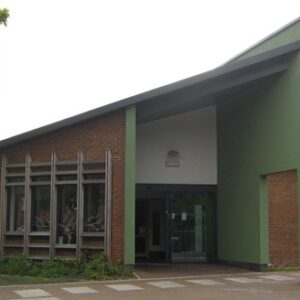
About Rose Lodge
Rose Lodge is a specialist unit in Hebburn, South Tyneside. It provides assessment and treatment for adults with significant learning disabilities.
Reduction in demand for beds at Rose Lodge
Although Rose Lodge has ten beds, only about five have been used at any one time in recent years.
Over the past few months, we have been able to work with partners to discharge or transfer the remaining patients from Rose Lodge, most of who had been clinically ready for discharge for some time. There are now no patients at Rose Lodge.
This reduced demand is due to increased support in the community, and improved joint working between CNTW and our partners across the health and care system. Local and national guidance has also increasingly focussed on supporting people with learning disabilities in their community or in mainstream mental health units wherever possible.
The provision of appropriate, safe and effective care pathways for individuals with a learning disability has been a significant feature of health and social care policy for many years (transforming care). The focus has been on reducing the number of people with a learning disability who are in receipt of hospital-based care.
Decision to temporarily close
We have therefore made the decision to temporarily close Rose Lodge for an initial period of six months from Monday 10 November 2025 following the successful transition and discharge of existing patients.
This temporary closure is an opportunity for us to explore new ways to provide better support for people with learning disabilities – see below.
New model to be piloted during temporary closure – the Learning Disability In-Reach and Transitions Team (LDITT)
As part of implementing a new Model of Care and Support which supports our strategy, we are exploring ways to improve our inpatient and community support for people with learning disabilities.
National and local guidance encourages providers to support people with learning disabilities in their community or in mainstream mental health services wherever possible.
Since June 2025, we have been developing an outline service specification and staffing model for a new Learning Disability In-reach and Transitions Team (LDITT) model.
The temporary six-month closure of Rose Lodge gives us a chance to test this new team in the North East.
The LDITT will offer enhanced care in our mainstream mental health wards by offering specialist support to people with learning disabilities, including those who are also autistic.
They will ensure these patients receive care and treatment which is right for them while in these mainstream wards. They will also help people to be discharged from hospital and transition back to their community in a safe and timely way.
We believe this extra support will mean that this group of patients will spend less time in hospital, be less likely to return after discharge, experience fewer restrictive practices, and overall have a better experience of care.
We will also be running a pre-engagement programme with staff, service users and carers, partners and the local community in the new year to get views on the LDITT model, and to shape our medium – longer-term model of care for learning disabilities and autism services.
What the Learning Disability In-reach and Transitions Team (LDITT) will do
The LDITT will offer expert support to people with learning disabilities, including those who are also autistic, who are being cared for in regular adult mental health wards. The team will use a Positive Behavioural Support (PBS) approach.
The team will:
- Visit mental health wards to help staff provide the best possible care and treatment (in-reach support). This might include working directly with patients or advising staff.
- Help patients leave hospital safely (transitional support to facilitate discharges). If needed, they may offer up to four weeks of support in the community. Our Community Learning Disability Treatment Teams will still play a key role in planning and support.
- Help staff in mainstream mental health wards to develop their skills and knowledge so they can better understand and support people with learning disabilities and people who are autistic.
What this means for patients
We believe this extra support will help people with learning disabilities, including those who are also autistic:
- Spend less time in hospital and be less likely to return after discharge.
- Experience fewer restrictive practices, due to staff’s improved knowledge and skills
- Have a better experience of care from CNTW
Who will be in the team?
The LDITT will include staff with a wide range of skills. All will be experts in supporting people with learning disabilities and mental health needs. (The team will include Psychiatry, Psychology, Nursing, Occupational Therapy, and other support staff.)
What will happen next?
Starting in the new year, we will be running a comprehensive engagement programme with our staff, service users and carers, stakeholders, partners and the local community to discuss options for the future. We will be communicating what our services look like, what some of the challenges are for these services and the people who rely on them, and our ideas for improvement.
This work will formally report into the North East and North Cumbria Integrated Care Board Transforming Care Executive Group, who will oversee the engagement and next steps in this process.
In the meantime, although there will be an opportunity to be involved, if you would like to meet to discuss anything further, please contact [email protected].
